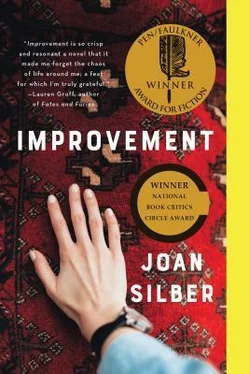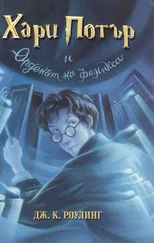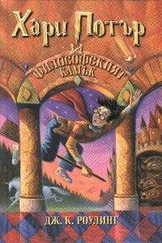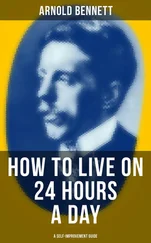She was washing the dishes when she heard her mother grumble, “What a bitch you turned out to be. You couldn’t even leave me just one. Was that too much to ask?” Monika had thrown out all the packs of cigarettes in the apartment, and now her mother had drunk enough to remember that she wanted a cigarette, why couldn’t she have one?
Monika wanted to say, You can go back to being a fuck-up when I’m gone , as if that even needed saying. Instead she went out the door and down the stairs and around the corner, just before the Mini Markt closed, and she bought a pack of Marlboros for half of what they would’ve been in New York. On the walk home, she took out a single cigarette and threw the rest in a trash bin.
And when her mother took the offered cigarette and sat back in her chair to have Monika light it, she exhaled the smoke with much drama and said, “I knew you’d do it. I knew if I asked you right.”
She might’ve been saying this fondly, but Monika felt taunted.
In the morning the schnapps put Monika on the plane with a hangover, and in her heavy-headed state, she spent the flight daydreaming of Julian. She was going home not only with desire (plenty of that) but also with relief at getting out of there, and was that heartless of her? A little.
When she walked through the door of their apartment in Bushwick, it struck her that she hadn’t been sure, not entirely, that Julian would still be there. Here he was—was he taller?—in his black eyeglasses, his ancient gray T-shirt—the actual Julian. “Hey, girl,” he said. He clung to her for a full minute, by way of greeting. Had he been worried?
“Back at last,” she said.
“I can’t believe you did that,” he said later. “In the midst of everything else.” He meant the alleged interest from a gallery in Berlin. It did seem to be a real gallery, one whose name he knew. He was not humble by nature but something like gratitude flowed from him. “One toe in the door,” he said. She’d surprised him with a wifeliness he didn’t imagine her having.
All from Bruno showing off. The part that puzzled Monika was that anyone had listened to Bruno for a second. Favors owed, drugs shared? No way to know. Bruno had gone to some trouble for her, in his way. He had things to make up for, didn’t he? There was more to be said for the power of regret than was often said.
The gallery owner wrote back at once—he admired the way Julian’s work “combined commentary and lyricism” while it altered the perception of spaces. The phrases made Monika remember what she liked when she liked it.
Julian was so pleased. As he moved through their rooms, he kept coming back to touch her, on the shoulder, at the hip. She loved his hands on her. He hadn’t been this glad to be around her since they’d first gotten back together, after she’d left. How very good it all was now, a good phase. Better than many. She was still waiting to tell him she’d dropped a chunk of their household budget on her mother.
Monika had not quite gotten over jet lag when she had her appointment with Lynnette, and it was a luxury to settle back into the chair with her eyes closed. They were a mess, her eyebrows. “Lot of work here,” Lynnette said.
Monika explained the whole thing about where she’d been.
“Your mom’s okay?”
“I don’t know. You can’t know.”
Monika was about to complain of all she’d had to do in Berlin—the endless visits to the hospital, the pesky errands for her mother, the humoring of Bruno, the euros she’d been convinced to leave behind—but she decided not to. She had done all that willingly, hadn’t she? What was the point if she hadn’t done it with a willing heart?
Lynnette said, “My own mom’s only forty-five, but it’s a miracle she’s not dead. Proof that God looks out for idiots.”
“Mine could live forever under that theory,” Monika said. Lynnette was dabbing on the soft wax with its oddly pleasant warmth. “You know what she said to me on the phone last night?”
Even Lynnette couldn’t guess.
“If I moved back to Berlin without my husband I could get someone better to marry me.”
“I thought you liked your husband.”
“I do.”
“Guess you weren’t persuaded then.”
“She’ll try anything. Always has. My husband says it’s her way of thanking me, this pressure to move back.”
She’d been quite astonished that Julian could see it this way.
Had she fixed things with Julian now? Could that be done? That was the question asked every day, all over: how much could ever be fixed? To ask was to sound cynical. And yet people who heard about Monica’s job always said what an excellent idea it was, return stolen art, return funds, do something.
Lynnette had now peeled off the wax and was on to the last bits of plucking, which she did with fierce swiftness.
“Julian will never leave New York, he just won’t. Even if we’re always broke,” Monika said.
“Of course, I myself personally can’t see living in Germany,” Lynnette said. “With the Nazis.”
Monika had already pointed out to Lynnette more than once that the war had been over for almost seven decades and the Nazi Party was illegal. But the worst facts dwarfed everything, didn’t they; no explanation could hold ground against that history.
“You know what it would cost to move that far?” Lynnette said. “Hard to make big changes without cash. You tell your mother that.”
Monika laughed. “She’ll tell me to rob a bank then.”
Who knew what her mother could ever ask for? Money took up a lot of room in her dreams, as it did in Lynnette’s. The last-minute envelope Monika had handed her mother had caught her off guard— what’s this? By now she might already be fretting there wasn’t more in it. But at the moment she had been giddy and jubilant, relieved to be loved, properly startled, and Monika was glad to think of it.
“My brother,” Lynnette said, “keeps saying he’s saving his money. I’ll believe it when I see it.”
“He’s young, right?” Monika said. “He can save later.”
“Got a lot of years ahead of him,” Lynnette said. “My big-shot brother.”
Monika’s eyebrows looked vastly better—what would she do without Lynnette? When she dug into her wallet to tip her, Monika almost gave her five euros by mistake. How odd it was to see it now, the bill with its engraving of a classical aqueduct, as if she’d been traveling between dimensions. “It’s good money,” Monika said.
“All money is good. But we take American here.”
“I bet other people forget and slip you foreign coins. People who travel.”
“I pity the fool,” Lynnette said, “tries it on me.”
I never liked Lynnette. I didn’t even like the way she said my name, “Ray-n-a,” too slow as if it were in quotes. How had Boyd ever liked her? I didn’t actually ask him that—I had my own ideas, too many of them, and I didn’t really want to know. She had her points, okay. But we weren’t destined to be fans of each other.
I heard more Lynnette stories after I left my aunt’s apartment and was back in the neighborhood. People said that for weeks she wouldn’t stop talking on and on wherever she went. She bothered her friends with phone calls any time of day or night, left ranting voicemails. Did anyone have any idea how many bones Claude had broken in the crash? Did people know he had once memorized a whole chapter of some fantasy novel and everyone thought he was so dumb? Why did they think he had died really? The true reason?
In the next phase, she kept her mouth shut. She hung out in the coffee shop where Boyd worked and sat drinking glasses of milk and saying nothing for hours. Boyd was able to get her to leave with intelligent coaxing, but some weeping and protest were involved on her part.
Читать дальше












